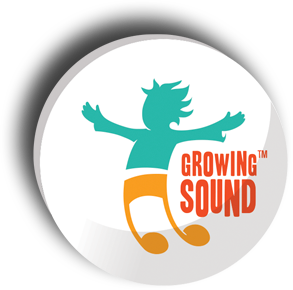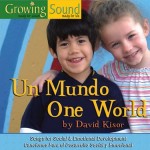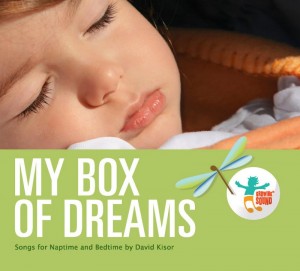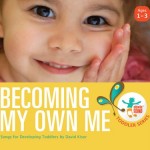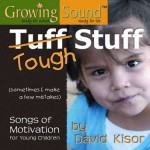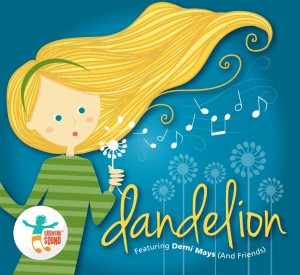 Babies have their unique ways of communicating, and one of the most common ways is through crying. As parents, we strive to understand and meet their needs, whether it’s hunger, sleep, or a dirty diaper. However, some babies experience excessive crying that goes beyond the usual fussiness. This condition, known as colic, can be distressing for both babies and parents.
Babies have their unique ways of communicating, and one of the most common ways is through crying. As parents, we strive to understand and meet their needs, whether it’s hunger, sleep, or a dirty diaper. However, some babies experience excessive crying that goes beyond the usual fussiness. This condition, known as colic, can be distressing for both babies and parents.
While the exact cause of colic remains unknown, research has shown that music can have a soothing effect on colicky babies. Music has been used for centuries as a form of therapy and relaxation, and its benefits extend to the youngest members of our families. In this article, we will explore the power of music in calming colicky babies and how you can incorporate it into your daily routine.
Understanding Colic and Excessive Crying
Colic is a common condition that affects newborns and infants, typically peaking between 6 and 8 weeks of age. Babies with colic cry excessively, often for more than three hours a day, usually in the evening. This prolonged crying can be distressing for both the baby and the parents, leading to feelings of helplessness and frustration.
It’s important to note that colic is a temporary condition that usually resolves on its own by the time the baby reaches three to four months of age. However, during this challenging period, parents can use various techniques, including music, to help soothe their colicky baby.
The Benefits of Music for Colicky Babies
Research has shown that music has a profound impact on our emotions and can elicit strong physiological responses. When it comes to colicky babies, music can help create a calming and soothing environment, reducing stress levels for both the baby and the parents. Here are some of the key benefits of using music to soothe colicky babies:
1. Relaxes the Baby’s Nervous System
Music has the power to activate the parasympathetic nervous system, which is responsible for promoting relaxation and reducing stress. The gentle melodies and rhythms of music can help regulate the baby’s breathing and heart rate, creating a sense of calmness and tranquility.
2. Distracts from Discomfort
Colicky babies often experience discomfort, such as gas or digestive issues, which can contribute to their excessive crying. Music can serve as a distraction, diverting the baby’s attention away from the discomfort and providing a source of comfort and relief.
3. Establishes a Routine
Babies thrive on routine, and incorporating music into their daily routine can help create a sense of familiarity and security. By playing music during specific times, such as before bedtime or during feeding, you can signal to your baby that it’s time to relax and unwind.
4. Enhances Parent-Baby Bonding
Listening to music together can be a beautiful bonding experience for parents and babies. When you sing or hum along to the music, your baby not only benefits from the soothing sounds but also from the emotional connection with you. This shared experience can strengthen the parent-baby bond and provide a sense of comfort and security.
How to Use Music to Soothe Your Colicky Baby
Now that we understand the benefits of music for colicky babies, let’s explore some practical ways to incorporate music into your daily routine:
1. Choose Calming and Gentle Music
When selecting music for your colicky baby, opt for calming and gentle melodies. Classical music, lullabies, and soft instrumental tunes are excellent choices. Experiment with different genres and observe how your baby responds to each one. Some babies may prefer soothing piano melodies, while others may find comfort in the sound of nature or white noise.
2. Create a Relaxing Environment
Create a soothing environment by dimming the lights, eliminating loud noises, and minimizing distractions. This will help create a calming atmosphere for your baby to unwind and relax. Consider using a white noise machine or a fan to provide a continuous and soothing background sound.
3. Use Music during Daily Activities
Incorporate music into your baby’s daily activities, such as feeding, bathing, or bedtime routines. Play soft music in the background while you nurse or bottle-feed your baby, creating a serene atmosphere. During bath time, choose playful and uplifting tunes to make the experience enjoyable for your little one.
4. Sing and Hum to Your Baby
Your voice is a powerful tool for soothing your colicky baby. Sing gentle lullabies or hum comforting melodies while holding your baby close. Your voice and touch combined with the music will provide a sense of security and reassurance.
5. Experiment with Different Sounds and Instruments
Babies have individual preferences, so don’t be afraid to experiment with different sounds and instruments. Some babies may respond well to the sound of a guitar, while others may find comfort in the rhythmic beats of a drum. Explore musical toys that are designed for infants and observe which ones capture your baby’s attention and bring them comfort.
6. Engage in Music and Movement Activities
As your baby grows, you can incorporate music and movement activities into your daily routine. Gently sway or dance with your baby in your arms while playing soothing music. This combination of movement and music can have a calming effect on your baby’s nervous system.
7. Seek Professional Music Therapy
If your baby’s colic persists or if you’re looking for more specialized guidance, consider seeking professional music therapy. Music therapists are trained to use music as a therapeutic tool and can tailor sessions to meet your baby’s specific needs. They can provide guidance on specific techniques and activities that will benefit your colicky baby.
Music has a remarkable power to soothe and comfort, even the most distressed colicky babies. By incorporating music into your daily routine, you can create a calming and relaxing environment that promotes emotional well-being for both you and your baby. Remember to choose gentle melodies, sing and hum to your baby, and engage in music and movement activities. Embrace the soothing power of music and enjoy the precious moments of tranquility with your colicky baby.
Click on an Collection To Listen To the Music!
Who You’ll Be Someday:
Songs and Stories for
Naptime and Bedtime
Ages 0-4
Contact us for more information!
